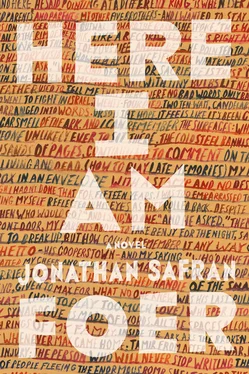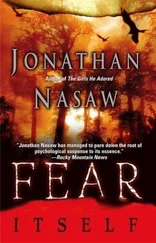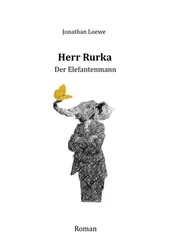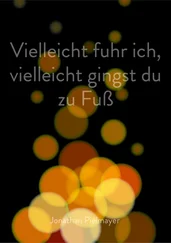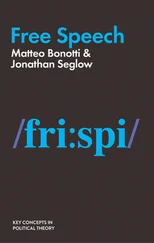My last memory of my family before the earthquake is by the front door, my parents about to take Benjy for the night, Sam and Julia about to leave for Model UN. Benjy asked, “What if I don’t miss you?” Of course he didn’t know what was about to happen, but how could I remember it any way other than as prophetic?
My last memory of my father is dropping him and his girlfriend at Dulles for his bucket-list trip to the Warsaw Ghetto — his Cooperstown — and my saying, “Who’d have thought it? Taking a shiksa to the Reverse Diaspora Prom?” I always felt that he withheld his laughter from me, but that got a good one. He patted my cheek and said, “Life amazes.” Of course he didn’t know he wouldn’t make it onto the plane, but how could I remember it any way other than as ironic?
My last memory of being married to Julia: the burnished handle of the snack drawer; the seam where the slabs of soapstone met; the Special Award for Bravery sticker on the underside of the island’s overhang, given to Max for what no one knew was his last pulled tooth, a sticker Argus saw many times every day, and only Argus ever saw. Julia said: “It’s way too late in the conversation for that.”
HOW TO PLAY “WHAT IS YOUR NAME?”
Max asked to have a bar mitzvah. Even if it was the expression of something subterranean, even if it was some kind of hypersophisticated act of aggression, it still pleased Julia and me. The year of study went off without a hitch or complaint, the service was beautiful (Julia and I stood together at the ark, which felt good and right), the party was themeless and genuinely fun, and he banked enough savings bonds to buy something pretty great just as soon as they matured to their face value in twenty years, at which point twice as much would seem like half as much.
Max’s portion was Vayishlach, in which Jacob — the last of the patriarchs — is assaulted by an unknown assailant in the middle of the night. Jacob wrestles him down and refuses to let go, demanding a blessing of him. The assailant — an angel, or God himself — asks, “What is your name?” As Jacob holds on to the man with all his strength, he answers, “Jacob.” ( Jacob means “heel-grabber”—he grabbed the heel of his older brother, Esau, as he was being born, wanting to be the first out.) Then the angel says, “Your name shall no longer be Jacob, but Israel — which means ‘wrestles God.’”
From the bimah, with a poise far beyond his years or mine, Max said, “Jacob wrestled with God for the blessing. He wrestled with Esau for the blessing. He wrestled with Isaac for the blessing, with Laban for the blessing, and in each case he eventually prevailed. He wrestled because he recognized that the blessings were worth the struggle. He knew that you only get to keep what you refuse to let go of.
“ Israel , the historical Jewish homeland, literally means ‘wrestles God.’ Not ‘praises God,’ or ‘reveres God,’ or ‘loves God,’ not even ‘obeys God.’ In fact, it is the opposite of ‘obeys God.’ Wrestling is not only our condition, it is our identity, our name.”
That last sentence sounded a lot like Julia.
“But what is wrestling?”
That sounded like Dr. Silvers.
“There is Greco-Roman wrestling, WWF wrestling, arm wrestling, sumo wrestling, lucha libre wrestling, wrestling with ideas, wrestling with faith … They all have one thing in common: closeness.”
And there I was, the intended recipient of his speech, sitting so close to my ex-wife that the fabric of our clothing touched, on a pew with children half of whose lives I was missing.
“You only get to keep what you refuse to let go of,” Max said.
“A Jewish fist can do more than masturbate and hold a pen,” my dad once said.
“To see your lifeline you have to let go,” I pulled from a fortune cookie one Christmas.
Max kept getting smarter and smarter. Julia and I had always assumed that Sam was the brains of the bunch — that Max was the artist and Benjy would be perpetually adorable — but it was Max who took chess seriously (he placed third in the D.C.-area sixteen-and-unders), Max who elected to have a Mandarin tutor twice a week (while his brain was still “supple”), and Max who was accepted to Harvard after his junior year of high school. (Not until he chose to apply a year early did I realize that all that extra credit — those supplemental courses, that summer school — was a way to be away more, and get away sooner.)
“Closeness,” he said, surveying the congregation. “It’s easy to be close, but almost impossible to stay close. Think about friends. Think about hobbies. Even ideas. They’re close to us — sometimes so close we think they are part of us — and then, at some point, they aren’t close anymore. They go away. Only one thing can keep something close over time: holding it there. Grappling with it. Wrestling it to the ground, as Jacob did with the angel, and refusing to let go. What we don’t wrestle we let go of. Love isn’t the absence of struggle. Love is struggle.”
That sounded like the person I wanted to be, but couldn’t be. It sounded like Max.
HOW TO PLAY NO ONE
I heard the shutter before I saw the photographer. It was the first and only shot of my war.
“Hey,” I said, stomping toward him. “What the hell are you doing?”
Why the hell was I so upset?
“I’m here for the Times ,” he said, showing me the press pass hanging from his neck.
“You’re supposed to be here?”
“The consulate gave me authorization, if that’s what you’re asking.”
“Well, I didn’t give you authorization to take a picture of me.”
“You want me to delete the photo?” he asked, neither assertive nor conciliatory.
“It’s fine,” I said, “but don’t take any more.”
“I don’t want a problem. I’m happy to delete it.”
“Keep it,” I said. “But no more.”
He walked off to take pictures of other groups. Some of them posed. Some were either unaware of his presence or unwilling to recognize it. My knee-jerk anger — if that’s even what it was — surprised me. But harder to explain was my insistence that he keep the photo he’d taken but not take any more. What two ways was I trying to have it?
My mind wandered to all those years of school portraits: the licked palms wrestling cowlicks under the pretense of a loving stroke; letting the boys watch a cartoon while sliding them into handsome, uncomfortable clothes; clumsy efforts to subliminally communicate the value of a “natural” smile. The pictures always came out the same: a forced grin with unparted lips, eyes vacantly gazing into the haze — something from the Diane Arbus scrap pile. But I loved them. I loved the truth they conveyed: that kids aren’t yet able to fake it. Or they aren’t yet able to conceal their disingenuousness. They’re wonderful smilers, the best; but they’re the very worst fake smilers. The inability to fake a smile defines childhood. When Sam thanked me for his room in my new house, he became a man.
One year Benjy was genuinely disturbed by his school portrait, unwilling to believe that the child in the picture was either him or not him. Max took it upon himself to prod Benjy’s distress, explaining to him that everyone has a living self and a dead self existing in parallel—“kind of like your own ghost”—and that the only time we ever get to see our dead selves is in school portraits. Soon enough, Benjy was crying. In an effort to calm him, I took out my bar mitzvah album. We’d already looked through several dozen photos when Benjy said, “But I thought Sam’s bar mitzvah was in the future.”
At my bar mitzvah party, relatives, friends of my parents, and complete strangers handed me envelopes with savings bonds. When my suit’s jacket pockets started to strain, I’d give the envelopes to my mother, who put them in the purse under her chair. My father and I tabulated the “righteous plunder” at the kitchen table that night. I can’t remember the figure, but I remember that it was evenly divisible by eighteen.
Читать дальше
